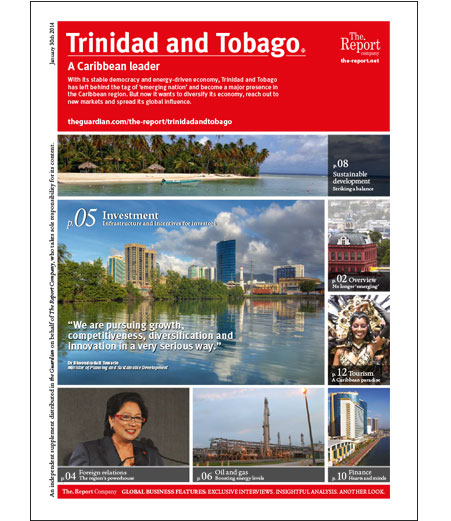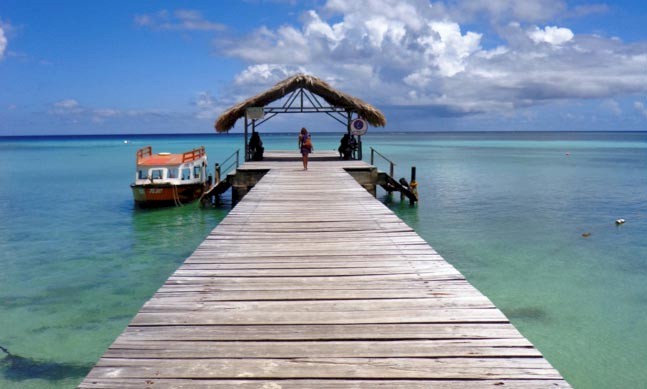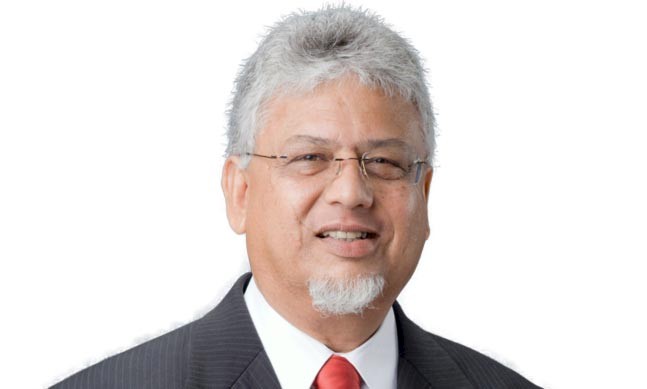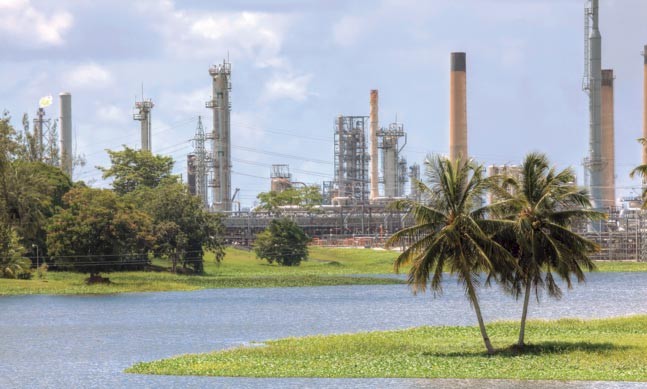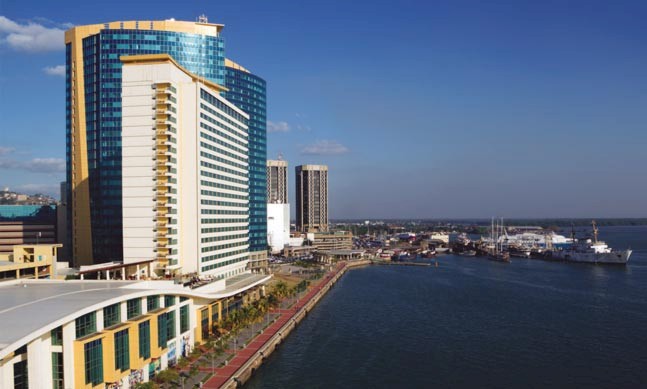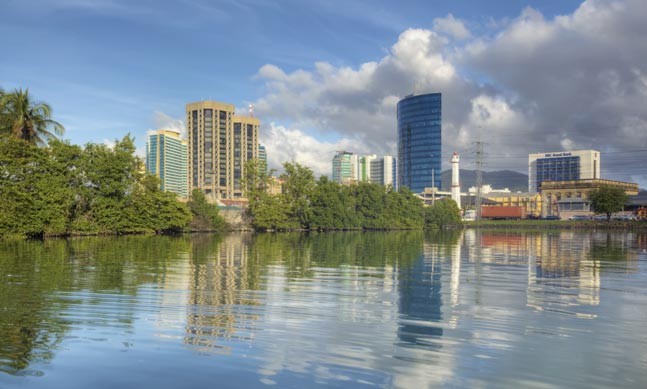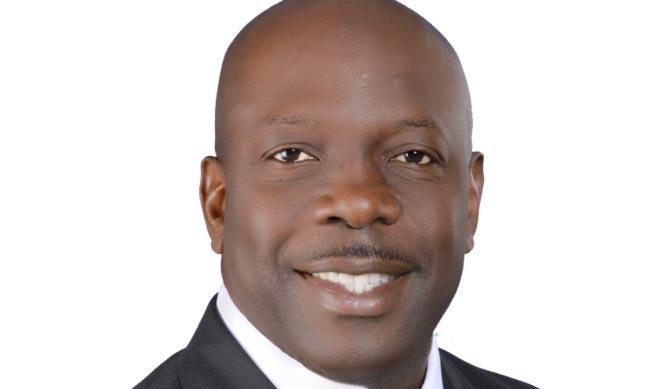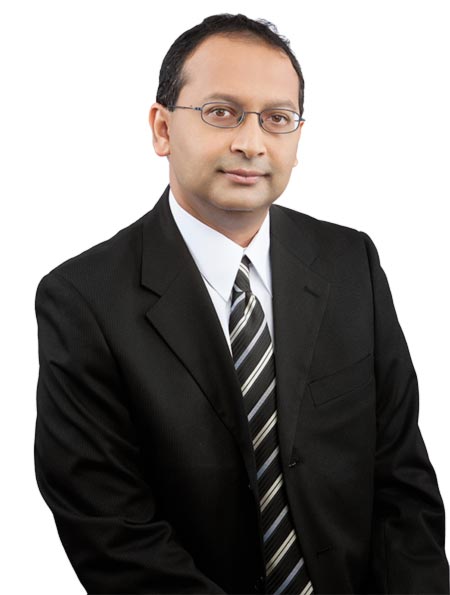
National Energy Corporation of Trinidad and Tobago Limited - a wholly owned subsidiary of the National Gas Company of Trinidad and Tobago - was incorporated in 1979 to monetise the country’s natural gas resources and develop and manage industrial and marine infrastructure. NEC was involved in the construction and operation of the early petrochemical plants and the port and marine infrastructure which service all plants at the Point Lisas Industrial Estate. Company president Dr. Vernon Paltoo spoke to The Report Company about his outlook for Trinidad and Tobago’s energy sector.
The Report Company: How would you appraise the energy sector in Trinidad and Tobago?
Dr. Vernon Paltoo: In terms of where we are as an energy sector destination I would say that we are in a transition mode. Over the years we have successfully developed the oil resources of the country. Commercial production started in 1908 and since then we have made inroads into the gas industry, which began as early as the 1950s going into the 1960s and more dominantly in the 1970s where efforts were made to monetise the gas through the National Gas Company, which is our parent company. National Energy Corporation was established in 1979 and since then we have made great strides in terms of being an established player in the natural gas industry. We are leading global exporters of methanol and ammonia from a single-site location and the seventh largest energy exporter.
We are perceived as a model for the monetisation of natural gas resources in many countries and we have provided assistance to other emerging energy provinces as to how to go about developing their resources in a manner that benefits not just the citizens but the country and the region as a whole.
Our energy services companies are world-class companies and we are laying the groundwork for them to have activities in other countries.
TRC: Where do you think the opportunities lie for the energy sector?
VP: We see opportunity in the emerging Latin American countries. We have done well within our country over recent last years; it is time for us to expand and go forward. Our resources are finite; we have to leverage what we have to make sure that it is sustainable in the future and one way of doing that is accessing new markets and new partners.
In terms of growing our local industry and local energy sector we see expansion into high-value products. In essence we want to eventually link the energy sector to the manufacturing sector and have integrated processing facilities. In that regard, in 2010 we started the production of melamine which is a derivative chemical of ammonia and is our first real integrated project. Melamine has provided us with the opportunity to produce finished high value manufactured products, and we see potential in importing wood from our neighbouring countries to make finished products for sale both locally, regionally and internationally.
We are also looking at things like biochemicals. We have established a pilot plant at the university where we are looking to convert natural gas via a fermentation process to a single cell protein. This links the energy sector to the agricultural sector and those are the kinds of linkages that we are looking at.
“Our energy services companies are world-class companies and we are laying the groundwork for them to have activities in other countries.”Tweet This
Renewable energy is another area that we are actively pursuing. There are several pilot projects that we are undertaking right now in terms of introducing things like solar cells to community centres.
We have very competitively-priced energy so it’s a challenge to make alternative energy economically viable but we recognise that it is the future and we need to make it happen here sooner rather than later.
TRC: What is the competitive advantage of Trinidad and Tobago compared to other countries?
VP: We don’t think of ourselves as competing against other countries; we think we can stand on our own. We have a package that is very attractive. Our location is very key in terms of accessibility to markets. We have many agreements with many countries that allow access to products and markets. Our way of life is very comfortable for many multinational companies and foreign investors. We have an established democracy and even though governments change, the law of contracts remains untouched.
TRC: How vulnerable is the energy sector to external shocks?
VP: We have withstood external changes in a very stable manner. The growth and the performance of the economy over the last few years have been very stable; we have not had some of the shocks that other economies have had. We have a good mix in terms of our industry; it is well balanced between oil and gas so while our oil production is a little less than 100,000 bopd, gas is about 4 billion cubic feet per day which is about 650,000 barrels of oil on an equivalent basis. While we are primarily a gas economy, oil provides more revenue so it’s a good balance in terms of ensuring that we have some cushion either way.
Nevertheless, world events like the shale gas developments in the US would obviously impact on us from a competitive perspective. Despite that, we believe that we can still attract world-class investment. On 8th April this year we signed a project development agreement with Mitsubishi Corporation of Japan, together with a local company, the ministry of energy and our parent company for the development of an integrated methanol and dimethyl ether facility. To me, that illustrates that we are still very competitive.
TRC: What can you tell us about the Galeota Port Development Project?
VP: This is a project that we are doing on behalf of the government. It is a state-of-the-art logistic port that we are building at a cost of US$80 million, primarily geared towards the exploration and production companies operating out in the southeast coast. It also facilitates the new deep water bid rounds. We foresee that the port will be used as a logistics hub for deep water exploration activity.
We also see it as a base to serve as a logistics hub for other operations in other countries in the Caribbean. We are close to the completion of construction and we expect the port to be fully operational by the middle of 2014.
“We see opportunity in the emerging Latin American countries. We have done well within our country over recent last years; it is time for us to expand and go forward.”Tweet This
TRC: What other projects do you have underway?
VP: We are looking to develop a metal processing project and a small-scale LNG project. We are well-established with Atlantic LNG, who is a major player with a world class facility, but we see opportunity in niche markets. There are a lot of opportunities. The environment changes on a daily basis. We have to make sure that we look ahead, capture markets and capture opportunities.
TRC: What CSR activities are you involved in?
VP: One of our mandates is to work in harmony with the environment and that includes the communities we work in. We follow world-class standards in all the activities we do, meeting global benchmarks in terms of how we approach all of our environmental standards and community activities.
We work closely with the communities, so for example in Galeota, where we are building the port, we have built a fish landing facility that will provide an opportunity for the communities to further enhance their livelihoods and improve their way of living.
We also work on enriching local companies in terms of training and development so they can work with us on some of our projects. So far I think we have done a credible job in terms of ensuring that we have buy-in from our stakeholders and we count our communities and our environmental obligations as key responsibilities in execution of all our projects.
TRC: What are your objectives during your time in your role?
VP: I’ve worked for nine years in the company having progressed throughout the various positions. All through those years, the vision of the company has been steady in terms of making sure that we are relevant for ensuring that this country’s resources are developed for the benefit of the people of this country. We ensure that the citizens are the ones that benefit and we do this in accordance with the mandate of the government.
My vision and my goal for this company is to ensure that we channel our strengths and our efforts into becoming sustainable and diversified, transforming the energy sector into one that can last for generations to come.
I want to ensure that this industry continues for at least another 100 years, providing revenue for the country. My goal is to develop the energy sector in this country in a manner that would allow that to happen and ensure that we expand beyond the borders of this country. That means investment in other countries, exporting our services, developing different types of projects and always thinking ahead, which is how we have reached where we are today.


